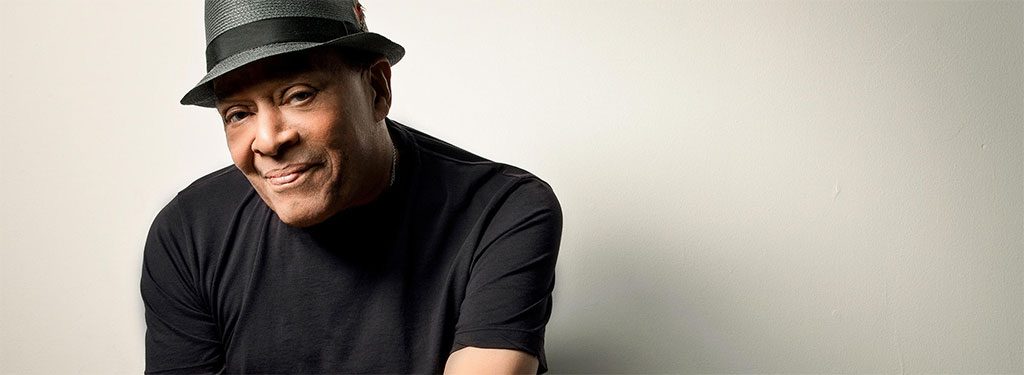
A few weeks ago, numerous people on Facebook and I revealed our favorite albums from our high school years. In my corner of the internet, I felt a little alone having Al Jarreau’s 1977 Grammy award-winning album, Look to the Rainbow: Live in Europe on my list, but I’ve often felt alone because of my personality and choices. This just seemed like part of it. Al Jarreau is of a particular taste and of a particular time, but he was one of the greats. Jarreau — dead this morning, February 12, 2017, shortly after announcing his retirement — has had a life that stood out on its own as a talent and ability worth marveling. He epitomized the voice as instrument.
Jarreau is one of those voices with personality. It’s frequently perky, its most remembered characteristic, or perhaps it’s its pliability. But one must remember with that pliability and perkiness comes a range, a storytelling element in the simplest of jingle. With characteristics clearly come character. His soft and sweet can easily slide into a yearning. He often had a little bit of a scratch to play with. It’s a voice that makes folks take seriously the role of vocalist. We have voices; we have some degree of control over them, but who among us has this much control? This much imagination? Yes, some can find it overwhelming, like beholding the vocal equivalent of the most majestic wildfire– its heat oppressive, its destructiveness purifying. It can be controlled but with the most adept of hands, his old George Duke isn’t with us anymore, either.
That first Grammy winning album, though? That collection of songs from Montreux and Hamburg and Berlin and so many other places in Europe that just went gaga over that voice in the 70s? That had a moment with me. My parents bought the CD because they had the album long ago the first time around, probably. We had recently gotten CD burners and Avery labels. A 14-year-old or so me, very proud of my reproduction of the disk with my horrid script and indecipherable background, keeping the album playing repeatedly in my 5-disc changer, frenetic scatting wafting through the house. My mother eventually insisting I stop playing the album after she told a friend over the phone “I keep hearing whodolodolodo bababababababa woooooo all over the place ever since he got that thing”. I memorized every note, and most of the time, I could execute them. As a youth, I just heard (repeatedly) what the guy who made Heaven and Earth really used to sound like, never fully contextualizing this as the beginning of something great, not understanding the narrative that tends to form when telling one another of friends or artists or brilliance or figures or those things we just need to make sense of. I fell for it, and hard, because voices don’t make this many sounds and more voices should.
[arve url=”https://www.youtube.com/embed/8M5hoxhY_gI?list=PLAyIN6TqHAewFMzE-tqlxPZdShpiAYlz-“/]
While blogs are out there noting the resurgence of yacht rock, it would seem as if now would have been the perfect time for Jarreau’s resurgence. Yet, as this community rooted for his return after years of flagging health, it was endearing to see an artist know within himself that it was time to end things on his own terms, choice made before he was cut short, making respectable work all the way. His whole career, he applied his voice with just the right touches, knowing he has the punch of cayenne pepper. His softer touch dueting with Oleta Adams on the A Twist of Jobim compilation, his guardedness tributing Duke three years ago, the bounce of Breakin’ Away. Sure, the man could scat like nobody’s business, but the most important thing to know about scatting is knowing exactly when it’s okay to do it (and those who believe never haven’t heard good scatting).
Al Jarreau was a jazz and pop star back in the days when one could actually be both of those things. He had range, warmth, and a charm that made him a presence his whole life. He has won seven Grammys, recorded over twenty albums, and made a defining impact in music. He was 76.
